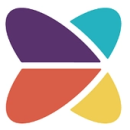Even AI skeptics concede that there is one area where AI is already making a massive impact: medicine.
AI can now aid clinicians in diagnosis by detecting irregularities on scans often before humans can. Healthcare data has historical challenges with many healthtech systems using vastly different labeling and organizing methods for patient data — something that AI can help organize and streamline. Not to mention the capabilities of AI to assist in drug research and robotic surgery.
There are dozens of new ways AI is being used in healthcare, and professionals like Sachin Sharma are leveraging their nonlinear career journeys to make an impact on both fields.
Iodine Software creates platforms for clinicians to use the power of AI to accurately capture patient documentation.
What’s your professional or academic background, and how did you break into the tech industry?
I have an undergraduate degree in engineering. Before medical school, I spent three years in software development, building data warehousing applications using Oracle PL/SQL.
I then made a career pivot into medicine — attending medical school and completing a residency in internal medicine. I went on to work as an attending physician for several years, working in different healthcare systems and gaining firsthand experience in clinical care and decision-making.
My path has been somewhat atypical: I started out in tech, transitioned into medicine, and have now returned to tech. This blend of technical and clinical experience gives me a unique perspective in my current work.
How did you learn how to use AI, and how do you apply it to your work? Please describe any resources and/or peer support you have received to accomplish this.
My interest in AI was sparked by the gaps I observed in hospital systems — inefficiencies, missed insights and opportunities to improve care through better tools. That curiosity brought me back to my engineering roots.
I began by teaching myself through online resources, personal projects and hands-on experimentation. To deepen and formalize my understanding, I completed Springboard’s Data Science Career Track, which gave me a strong foundation in machine learning, data analysis and real-world applications.
Today, I apply those skills to build tools that support clinical decision-making and optimize operational performance. The support and collaboration of the data science team at Iodine have been invaluable. Their guidance has played a major role in helping me ramp up and contribute meaningfully to our work.
What do you consider the greatest benefits of leveraging AI? How has it positively impacted the work you produce as a whole or your career?
Every day, more physicians are integrating AI into their workflows to reduce cognitive load. One of the most powerful benefits of AI is its ability to extract insights from complex, high-volume data — especially in healthcare, where decisions are often made under time pressure and with incomplete information. AI helps identify patterns, reduce variability in care and support clinicians in making more informed decisions.
For me, AI has opened the door to solving clinical problems in ways I couldn’t as a physician alone. As both a hospitalist and a data scientist, it’s been deeply meaningful to bridge these two worlds — witnessing how AI is reshaping hospital systems from the inside, while also contributing to that transformation by building the tools that power it. Experiencing both perspectives has given me a unique sense of purpose and has fundamentally changed how I approach challenges in healthcare.
Working in this space has also broadened my perspective. I now approach problems through a hybrid lens — combining clinical intuition with data-driven analysis — which has made my work more rigorous, impactful and rewarding.






